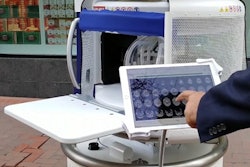Dear MRI Insider,
Contrast-enhanced (CE) MRI has been a reliable option to confirm cases of breast cancer in women whose ultrasound results and mammograms are inconclusive, but low-radiation-dose CE mammography could be a more efficient alternative.
European researchers are reporting that the modality performed significantly better in specificity and positive predictive value than CE-MRI and matched its high detection rate for malignant lesions. The key to this approach is reducing the dose to alleviate concerns of radiation exposure to patients. More details are available in this edition's Insider Exclusive.
In other research, breast MRI scans found six cases of breast cancer in high-risk women that had been missed with clinical breast examinations, but the modality also led to a number of recalls that exceeded established guidelines.
In addition, researchers from the University of Texas at Dallas are resurrecting an organic, biodegradable compound that someday might be the foundation for a nongadolinium-based MRI contrast agent. Their preclinical study describes how they attached organic radical contrast agent molecules to a tobacco mosaic virus and successfully tested their creation on mice.
Artificial intelligence (AI) continues to make its mark on multiparametric MRI scans of stroke patients. A new study shows how AI algorithms enhanced sensitivity and provided comparable specificity for radiologists looking to determine if stroke onset had occurred within 4.5 hours of an MRI scan, allowing for patients who would otherwise have been ineligible for thrombolysis to receive the treatment.
Finally, researchers from France and the U.K. have developed an MRI-based five-point scoring system that can distinguish between malignant and benign ovarian cysts with an accuracy of 90% when ultrasound exams are inconclusive. The results are so promising that the group suggested that its Ovarian-Adnexal Reporting and Data System (O-RADS) be used for risk assessment when other avenues of cancer evaluation do not provide a definitive answer.
Be sure to stay in touch with the MRI Community on AuntMinnie.com on a regular basis for coverage of news and research developments around the globe.




















